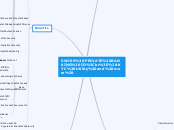SWISS PRIVATE BANKING ID
(KYC Utility and more)
Benefits
Client
Reputation
Prestige
Savy Investor - share achievements among peers
Increase my Personal Value
Easy-Access-to-Private Banks
Request for Investment Proposal
Improved Onboarding Experience
Value-Add-Services
Concierge Services
Affiliate-Offerings
Lounges
VIP Card
"Pay with your good name" High Value Payments
VIP Club Cards (SoHo House, Business Clubs)
Peers Network
Co-investing clubs
Granular Control over their data
Transparency in the Onboarding Process
Means of Authentication
Improved Security
Qualified Digital Identity
authorities
KYC Data Portability
Bank
Reduced Cost
Cost Sharing of scarce/expensive specialists
Solution for GDPR & MIFID Transparency & Confirmation Requirements
Reduced onboarding times
Prospecting Tool Qualified Leads
Reverse Enquiries from Clients
Improving the RM and Investors Officers value and quality measurement
Explore and test for new sources of Revenue
Platform approach - open collaboration for Fintechs/Banks and lower cost of Innovation
Regulator and Authority
Improved AML (holisitc view)
Transparency Increase
Challenges
Agree on Data-Structure and Interfaces
Security
Technology
Geographic diversity
Multilanguage
Information Capture & Corroboration
Chicken and Egg Problem
Marketing Costs
Network and Stakeholders
BANKS
Invest and Capital Markets
Wealth Managements
Financial Services
Affiliates
Luxury Industry
Real State
Travel Industry
Insurance
Fintechs
FINMA
Cross Border
Getting it Done
Data-Structure
Party Model
Person
Country of Residence
Documents ID
Social Network
Education & Profession
AML Risk
Source of Wealth
Personal Information
Knowledge and Experience
Preferences and Restrictions
Role in the Business relationship
Power of Attorney
Family
Beneficial Owner
Account Holder
Personal Link
Legal Entity
Legal Type
Controlling Person
Bank Client Data
Portfolio and Positions
Risk Profile
Investment Strategy
Risk Appetite
Risk Capabilitiy
Investment Goals
Cash Flows
Time Horizon
Restrictions
Account
Account Type
Investment Team / Organisation
Mandate Management
Legal Signature
Risk
Geographical Assessment
Operating Monitoring
Documents
Digitalization
Contract and Documentation
Storage
Physical Archiving / Doc Transportation
Instrument Data
Audit Data
Required Technology Partnerships
Data Providers
LexisNexis
WorldCheck
Other Due Diligence Providers DBs
Social Networks
Transaction Monitoring
Actimize
Mantas
Analytics
Hosting
Swiss Hosted
Operations
Risk and Mitigations
Client
Data Security Concerns
Bank
Loss of Competitive Advantage
Lowers the Entry Barrier for new entrants (FINTECS)
Untertopic
Increased Price Transparency
Easier Churn
Costs
MITIGATIONS
Data Security by Design
Personal Data Remains with the Client
Bank Data remains with the Bank
Entity Keeps only AUDIT and LOG Data
